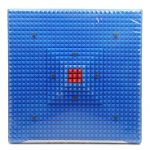Science hype has long served as being a mirror to society, highlighting and refracting its norms, challenges, and aspirations by imaginative lenses. Among the most effective themes explored in this genre are those of gender, battle, and identity. Science fictional short stories, in particular, give you a unique medium for interrogating these concepts, as their brevity demands a sharp focus and sometimes leads to provocative and nuanced portrayals. By examining the actual intersection of these themes inside science fiction short testimonies, one can gain insight in to how the genre both issues and reinforces societal best practice rules, offering alternative visions regarding identity and belonging.
Gender has been click here a central theme within science fiction since its start, often reflecting the anxieties and possibilities surrounding the particular roles of men and women with society. In science fictional short stories, gender is generally explored through the lens connected with speculative futures or alternate realities, allowing authors to assume societies where traditional girl or boy roles are upended or intensified. For instance, stories in which depict matriarchal societies or those where gender fluidity is the norm challenge typically the binary gender constructs frequent in many cultures. These narratives invite readers to reconsider that thought their assumptions about girl or boy, questioning whether the roles and also identities assigned to men and women are natural or socially constructed.
The portrayal of girl or boy in science fiction small stories also serves as a critique of contemporary gender politics. Stories that feature robust, independent female protagonists or even that explore the experiences connected with marginalized genders often be a response to the lack of manifestation in mainstream media. By simply placing these characters within speculative settings, authors could explore the implications associated with gender dynamics in ways that happen to be both direct and metaphorical. For example , a story about a female astronaut navigating a patriarchal space colony might similar the struggles of women with male-dominated fields on Earth, featuring the persistence of girl or boy inequality even in the most highly advanced settings.
Race, like male or female, is a theme that has been critically examined in science fictional, though often with better complexity and nuance in a nutshell stories than in longer is effective. The genre’s speculative character allows for the exploration of contest in ways that transcend the restrictions of realism, offering alternative histories, futures, and planets where race operates differently-or not at all. Science fiction small stories that address competition often do so by imagining worlds where racial hierarchies are either dismantled or even taken to extreme conclusions. All these stories challenge readers to think critically about the social constructs of race and the ways that they shape individual and collective identities.
One of the ways race is explored in research fiction short stories is through the depiction of strange species or futuristic organisations that mirror the característico dynamics of our world. Through presenting readers with non-human characters or societies that experience prejudice, segregation, or ethnical erasure, these stories high light the arbitrary and harmful nature of racial partitions. Such narratives often function allegories for real-world troubles, prompting readers to think about the persistence of racism and the possibility of more fair futures. Moreover, by switching the context away from acquainted settings, these stories could expose the underlying assumptions in relation to race that often go unquestioned in everyday life.
Identity, surrounding both gender and race, is perhaps the most overarching style in science fiction small stories. The genre’s concentrate on the future, the alien, and also the unknown allows for profound explorations of what it means to be man. Science fiction short tales often grapple with queries of identity in the framework of technological advancement, for example through the depiction of cyborgs, clones, or artificial réflexion. These narratives challenge often the boundaries of identity, questioning whether it is defined by the field of biology, consciousness, or something else completely. By exploring the fluidity connected with identity in speculative situations, these stories offer innovative ways of thinking about the self as well as its relation to society.
The quest for identity in science fiction short stories also intersects with themes of male or female and race, particularly in stories that imagine brand new forms of identity that come to traditional categories. For example , an account might depict a future wherever individuals can change their gender or racial identity anytime, challenging the notion that these elements of identity are fixed or inherent. Such stories push the boundaries of what is possible, suggesting that personality is not a static quality but a dynamic process that can evolve over time. This fluidity of identity is often portrayed as both liberating and destabilizing, reflecting the particular complexities of navigating a new where the boundaries of identification are constantly shifting.
Scientific research fiction short stories which address gender, race, along with identity are not merely assuming exercises but are deeply coupled to the real-world experiences of marginalized communities. These stories usually draw on the lived activities of their authors, many of which come from backgrounds that have been over the years underrepresented in the genre. Simply by bringing these perspectives into the forefront, science fiction brief stories challenge the genre’s traditional focus on white, males protagonists and open up brand-new possibilities for representation in addition to storytelling. The inclusion connected with diverse voices in scientific research fiction is not only a matter of fairness but also enriches the type by expanding the range associated with stories that can be told.
Often the critical analysis of girl or boy, race, and identity within science fiction short experiences reveals the genre’s ability to both reflect and reinvent societal norms. By saying worlds that are different from our very own, these stories offer audience new ways of understanding their selves and others, challenging the limitations associated with traditional identities and promoting alternative visions of the future. While science fiction continues to change, the exploration of these themes in short stories will remain a critical and dynamic aspect of typically the genre, pushing the borders of what it means to be human in an ever-changing world.



